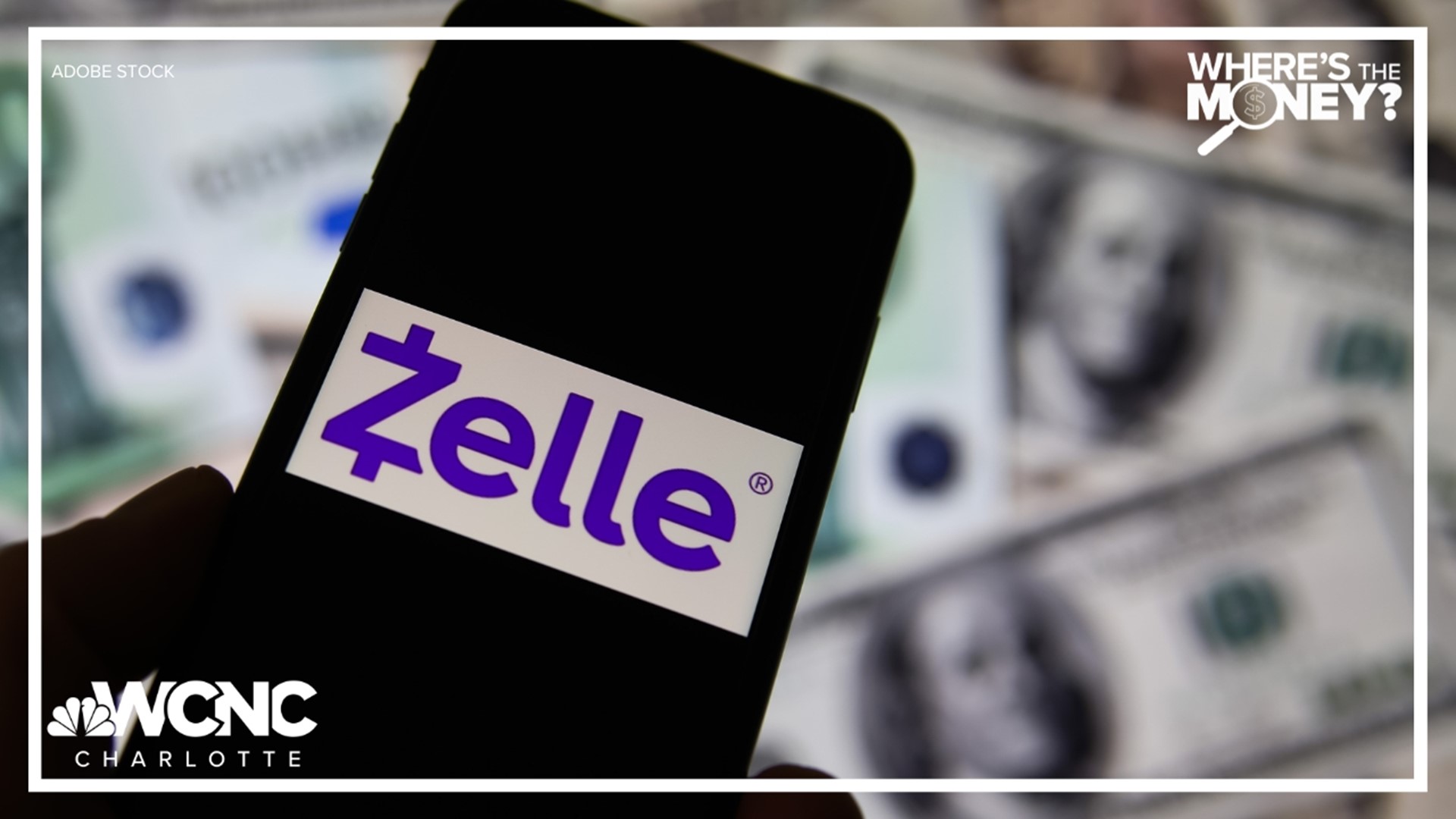CHARLOTTE, N.C. — Scammers are trying to steal hard-earned cash from bank accounts, leaving many people asking "Where's the money?"
The latest ploy is attempting to get people to send scammers money through the banking app Zelle.
Zelle is a convenient and secure way for people to send and receive money. Many major banks offer and use this service but now, so are thieves.
Charlotte resident Lucas Bogg knows about the scam firsthand after getting a call from an imposter.
Bogg told WCNC Charlotte that the caller ID said Bank of America and the person sounded very professional on the other line. The caller told Bogg there was a suspicious account opened with his information and that he needed to confirm this action.
Bogg later realized it was a scammer on the other line.
“Between the caller ID and the person on the phone, it sounded like somebody from the Bank of America,” Bogg said. “They said there were two Zelle transfers pending that were made from this new account, that I would be on the hook for if we didn’t get this straightened out."
The two transfers totaled $3,500. When Bogg told the caller he did not open an account, the fraudster said it would be canceled, gave him a confirmation number, and said he would be transferred to another rep.
While on the line, Bogg checked the initial phone number with Bank of America’s Customer Service number and it matched. Then he jumped on the app to check his account.
“I see my credit card, I see my checking account, I see my savings on there and I don’t see the new account and they told me it was flagged as suspicious and that’s why it’s not on there,” Bogg said.
That’s when he hung up and called Bank of America directly.
“They told me it is a common scam where they would try to get me to Zelle money back to myself to stop the fraudulent Zelle transaction but in reality, I’m transferring it away from my account," Bogg explained.
A family member of his was not so lucky and fell victim to the exact scam on the same day – transferring $3,500 to a scammer.
“She thought her account was indeed compromised and there were fraudulent Zelle transactions made,” Bogg said. “Now, she is working her way back, dealing with the mess with the bank to try and recover her money.”
While Bogg’s family member was able to recover some of the money, Tom Bartholomy with the Better Business Bureau said that is not always the case.
“If it does happen to a credit card, you do have rights, federal rights to have that taken off your account. Otherwise, you're at the mercy of your bank,” Bartholomy said. “There's no protection with that direct access to your checking account or with your debit card.”
WCNC Charlotte is always asking "where's the money?" If you need help, reach out to WCNC Charlotte by emailing money@wcnc.com.
Bartholomy said scammers are getting more sophisticated with their methods to steal your money. He said once they have a cellphone number, they find the dominant bank in that area code and then call you to see if it is a match.
“Zelle and Venmo are becoming more and more popular payment methods. And rightfully so it's, it's convenient, and it's secure. It has a lot of things going for it,” Bartholomy said. “Scammers realized that and so they've tried to figure out ways to get into our pockets by posing as somebody from the fraud department at Bank of America, Wells Fargo or Truist or any ... all banks are being used in this type of scam.”
WCNC Charlotte reached out to Bank of America. A spokesperson for the bank said they would never contact you and ask a client to send money to them or anyone else. Folks are encouraged to only send money to people they know personally. Anyone who has any concerns should call the customer service number on the back of their debit or credit card.
Bank of America Full Statement:
"Bank of America will never ask a client to send money to themselves or anyone, ever. Spoofing and fraud communications from a bad actor often have urgency, typos, asking clients to send money, etc. They use methods to appear to be authentic from the bank. Bank of America prioritizes client protection and works with clients and the industry to mitigate risks. When sending money using Zelle, clients receive several messages alerting them to red flags that indicate a scam including, as referenced, that we would never ask a client to send money to themselves or anyone and are encouraged to only send money to people they know personally. Clients who have questions after they receive calls or texts that appear to be from their bank should call the customer service number on their debit or credit card or review their transactions online to confirm any questionable or fraudulent inquiries."
Here are some links BOA shared to educate people about avoiding scams and protecting their accounts:
- Privacy & Security Center at Bank of America
- How to Identify a Bank Scam to Keep Your Account Safe (bankofamerica.com)
- How to Recognize and Prevent Bank Fraud to Avoid Becoming a Victim (bankofamerica.com)
- Recognizing Bank Account Fraud & Identity Theft FAQs (bankofamerica.com)
- Report Suspicious Activities & Transactions on Accounts (bankofamerica.com)
Contact Jesse Pierre at jpierrepet@wcnc.com or follow her on Facebook, X and Instagram.
CNC Charlotte's Where's The Money series is all about leveling the playing field in the Carolinas by helping others and breaking down barriers. WCNC Charlotte doesn't want our viewers to be taken advantage of, so we’re here to help. Watch previous stories where we ask the question “Where’s the Money” in the YouTube playlist below and subscribe to get updated when new videos are uploaded.

